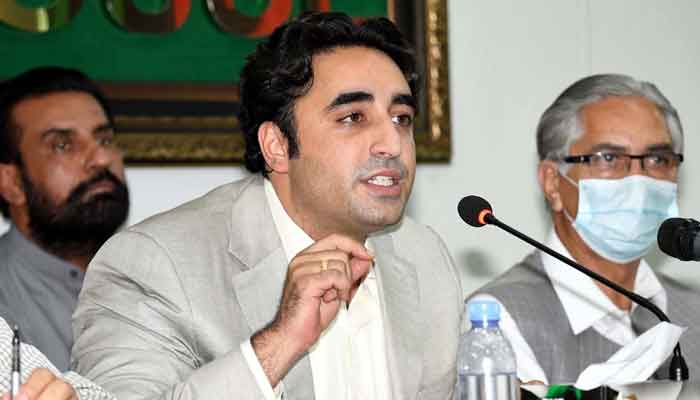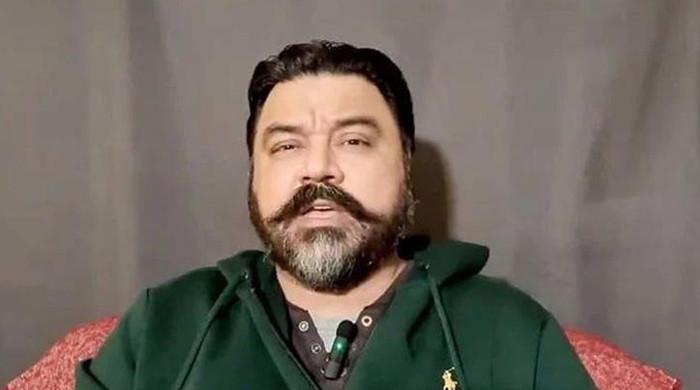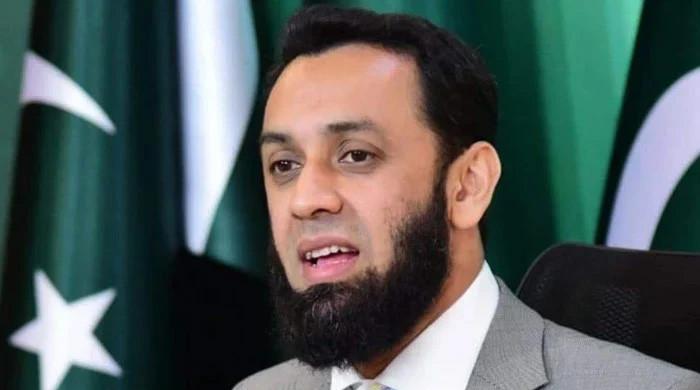PPP forwards resignations from PDM posts to Fazlur Rehman
PPP had announced a day earlier that it would step down from the offices allotted to it in the PDM
April 13, 2021

- The PDM, an alliance of ten opposition political parties, was formed in September last year to launch an anti-government movement.
- PPP had announced to step down from the offices allotted to it in the PDM over show cause notice sent to them.
- Nayyar Hussain Bukhari says PPP leaders Sherry Rehman, Raja Pervaiz Ashraf, Qamar Zaman Kaira have submitted resignations to Maulana Fazlur Rehman.
ISLAMABAD: The Pakistan People's Party (PPP) said on Tuesday that it has submitted its resignations to the president of the Pakistan Democratic Movement (PDM) as announced by Chairman Bilawal Bhutto.
“Today, we submitted the resignations of our party leaders — Sherry Rehman, Raja Pervaiz Ashraf and Qamar Zaman Kaira — to Maulana Fazlur Rehman,” Nayyar Hussain Bukhari, a senior PPP leader told Geo.tv.
The PDM, an alliance of ten opposition political parties was formed in September last year to launch an anti-government movement.
But earlier this month, differences began to emerge within its ranks. First, the Awami National Party (ANP) announced it was quitting from its positions in the PDM. Then on Monday, the second largest opposition party in the country, PPP, also announced to step down from the offices allotted to it in the PDM.
Read more: Bilawal tears up PDM's show-cause notice during PPP's CEC meeting, say sources
The ANP’s and PPP’s decision comes after the PDM leadership sent the two political parties a show cause notice to explain why they sought support from allies of the ruling party to get a PPP politician appointed leader of the opposition in the Senate.
“The PPP laid the foundation for the PDM,” Bukhari said when asked if PDM could remove the PPP from the alliance, “No political party [in the PDM] has the jurisdiction to remove us. There is no mention of this in the 26-point charter. The PDM is not a political party. It was an alliance to dislodge the government.”
Bukhari added that Shahid Khaqan Abbasi, the secretary general of the PDM, took a “U-turn” by first calling the notice issued to PPP a show cause notice and later said that the PDM was only asking for an explanation.
Read more: PPP will not leave the PDM, says Nayyar Bukhari
“If they wanted an explanation, they could have called us and discussed the matter in a PDM meeting. We would have replied,” the PPP leader added.
Bukhari said that the PPP could launch its own anti-government movement by staging protests in Ramadan against the government’s policies on the central bank, the IMF and inflation in the country.











